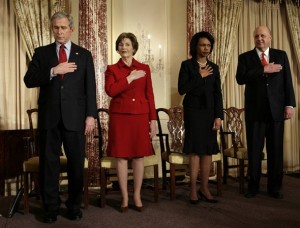“Last Sunday, New York Times columnist Nick Kristof blasted the academy for being so cloistered in the ivory tower that its influence over policy was minimal,” writes Daniel W. Drezner. A professor of international politics at the Fletcher School of Law and Diplomacy, a contributing editor for Foreign Policy and a non-resident fellow at the Brookings Institution, Drezner argues, “Market folk need to learn about politics from academics and Beltway insiders. Academics need to learn about the erroneous assumptions made inside the Beltway. And D.C. folk need to find out when their collective consensus might be in error. Forcing the tribes to engage with each other will at least highlight the imperfections of the tribes to themselves. When it comes to understanding the world, a healthy dose of humility can be a very good thing” (“What Nick Kristof Doesn’t Get About the Ivory Tower,” Politico Magazine, 21 February 2014). I certainly agree about the need for humility on the part of all of these parties, including academic political scientists, who for the most part have not helped make US foreign policy more progressive or even effective; while some country & area studies people have brought some good background to discussion of specific issues, the theory construction that’s so prized in the halls of academe have had little impact on policy making & even less positive impact. The 2 secretaries of state (also national security advisor beforehand) coming from academia — historian Henry Kissinger & political scientist Condoleezza Rice — have distinctly mixed records when it comes to shaping US foreign policy; Kissinger was responsible for enormous crimes against humanity (Chile, Cambodia, etc.), and Rice who helped push the US into war with Saddam Hussein’s Iraq, was arguably one of the worst secretaries of state in US history. Given the paucity of decent theories to describe, explain & predict international relations phenomena, the marginal influence of most academics is probably a good thing…
